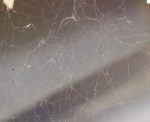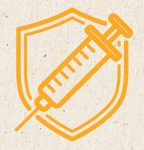
I think it would be a fine idea to shut down amoral, exploitive companies, like the oil and gas industry, and while we’re at it, the tobacco companies, and we should do it soon before they metastasize any more. The question is…how? Tumbrels and guillotines are so passé, and they aren’t at all effective against abstract legal entities. We also can’t just, say, blow up their pipelines and processing plants, because that doesn’t provide for a gentle, gradual transition that won’t kill people — and as someone looking at an onrushing Minnesota winter, I can assure you that just shutting off the gas will kill lots of us. Another problem is that these companies are using their ill-gotten profits to diversify, buying up other companies that will keep them fat and happy even if we do demolish the petroleum industry, so it’ll be hard to satisfy the lust for vengeance.
OK, tumbrels and guillotines it is, then!
No, wait, here’s an article that makes some productive suggestions about shutting down the petro fuel industry. Shucks, I guess we could try this first.
Pro-abolition groups say this process would entail putting elected officials – not corporate executives – in charge of fossil fuel assets. The US government would slowly stop drilling or buying leases as it prioritizes lowering emissions and investing in clean energy. Nationalized ownership would allow the US to leave oil and gas reserves in the ground while simultaneously shrinking the fossil fuel company’s grip on the nation.
Such public intervention would also prevent oil companies from simply shutting down operations, laying off their workers and leaving behind devastated towns and counties, as coal companies have done, Skandier said. “We need to consider that a lot of these communities are highly dependent on fossil fuel revenues, so we need to plan how we’re going to build community wealth and diversify their economies to make sure they’re not only economically stable but resilient to climate impacts in the future.”
The US could take the land or reserves currently owned by the fossil fuel industry via eminent domain, the legal right governments have to seize land or infrastructure for the public interest. The federal government has done this before to create national parks and even to convert a private energy company in Tennessee into the now publicly owned Tennessee Valley Authority during the Great Depression.
All in favor, say “AYE”.
The article admits that it won’t be easy and there will be pitfalls.
Any movement to break up big oil, however, will inevitably face enormous headwinds. The industry benefits from being deeply ingrained within American society, and it’s expected that oil and gas interests would push back hard in courts. Nationalizing profitable industries would also take an unprecedented amount of political will, which has yet to materialize.
Law expert Sean Hecht warns that breaking up energy companies may lead to unintended ripple effects. History suggests that simply erasing a company’s existence may make it easier for them to ignore their financial responsibilities when they’ve caused harm.
Hecht, the co-executive director of UCLA Law’s Emmett Institute on Climate Change and the Environment, saw this firsthand in Los Angeles, where he lives. When the Department of Justice shut down Exide Technologies in 2015 for illegally poisoning neighborhoods with lead for decades, the company filed for bankruptcy and left taxpayers to foot the cleanup bill.
This is going to hurt, and there are a lot of lawyers who will savagely fight back. Of course there will be unexpected and deleterious side effects — but will they be worse than rising seas, out-of-control wildfires, gooey black muck in our water supplies, or vast tracts of land rendered uninhabitable by lethal summer temperatures? I think not.






